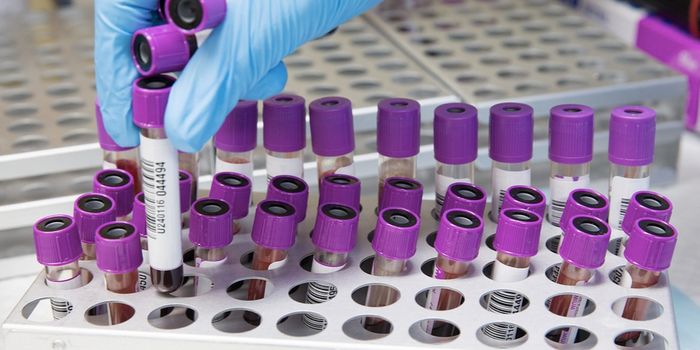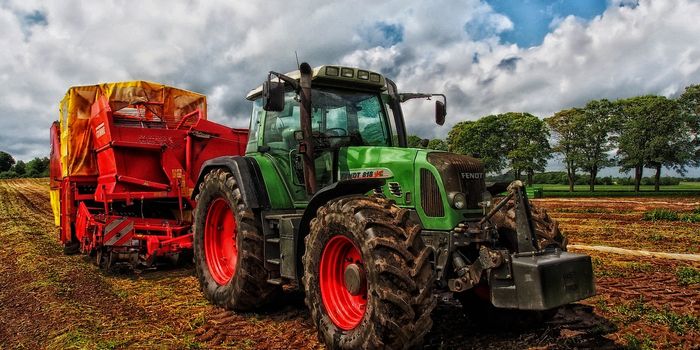Can Hydroponics Be Organic? US Standards Board Says Yes
In hydroponic agriculture, plants are grown in nutrient-enriched water. Most hydroponic farms are indoors and climate-controlled. They typically use zero pesticides and their status as organic has been fiercely debated. In Nov. 2017, the National Organic Standards Board (NOSB), an advisory to the United States Department of Agriculture (USDA), made the decision that hydroponics and aquaponics, which blend hydroponic systems with fish farms, can maintain an organic label in the U.S.
Two main groups benefit from the NOSB’s decision, according to Modern Farmer: eco-conscious tech-minded farms and farming organizations and larger agribusinesses. Recirculating Farms Coalition (RFC) falls into the former category and focuses on using recycled water in its farms. It supports the NOSB ruling.
“By siding with current science and recognizing that existing law purposely leaves the door open for various farming methods, the NOSB is sending a critical message that sustainability and innovation are valuable in U.S. agriculture,” says Marianne Cufone, RFC executive director.
The U.S. has a $50 billion organic industry and organic farmers can charge up to double prices in some cases. The USDA states that to earn its Organic Seal, a product “must follow strict production, handling and labeling standards” and undergo an organic certification process. Pest and weed control, soil quality and animal raising practices are relevant factors and “synthetic fertilizers, sewage sludge, irradiation and genetic engineering may not be used.” Organic produce must be grown in soil that has been exposed to zero prohibited substances – “most synthetic fertilizers and pesticides” -- for three years. One of the accepted benefits of organic crops is that they can shield consumers from the established negative health effects of exposure to human-made pesticides.
While many countries, including those in the EU, do not consider crops organic unless they are grown in the soil, the U.S. has previously allowed hydroponic plants to be considered organic. In 2010, the NOSB recommended against almost all soilless growing being called organic, but the USDA chose not to follow this recommendation in regards to hydro- and aquaponics. This move has been protested by some soil-based, traditional organic farms and their organizing groups, who meet organic standards in cooperation with the natural environment and do not see an equivalence between their methods and those of larger hydroponic farming operations. Dan Nosowitz of Modern Farmer points out that organic farmers engage with and benefit the soil, local pollinators and the entire ecosystem in which they farm. Some organic farmers have threatened to leave the NOSB over this labelling issue.
Dave Chapman, a longtime organic tomato farmer in Vermont, considers the extension of the organic label a “failure” and says the “decision to embrace hydroponic production as the ‘new organic’ is the final straw."
Hydroponic farms also offer many benefits; they are able to function in diverse locations, may repurpose urban spaces such as abandoned factories, and can take up less land by being vertically oriented. They can grow nutritious crops without chemicals and sometimes, with reduced water use.
The world population will reach an estimated 9.7 billion by 2050 and The Food and Agriculture Organization (FAO) reports that more than 80 percent of the land suitable for raising crops is already in use. High-tech and compact food-production methods like hydroponics may turn out to be not only inventive and resourceful, but necessary.
Urban Crop Solutions is a Belgium-based hydroponic vertical farming company that has opened a headquarters in Miami. It sells highly-automated indoor farming products for both large scale and introductory operations. It offers more than 180 crops, which it says have shorter growth cycles and increased nutritional value.
"Urban Crop Solutions and its growers all have the mission to provide the end-consumer with safe food of a high quality. For that reason, the recent advice provided by the NOSB to the USDA is exciting to us because it acknowledges that healthy and organic food production can go hand in hand with the continued development of innovative production systems such as our own,” says Urban Crop Solutions U.S. Country Manager Pieter De Smedt.
While the debate over the use of the term “organic” and which farming practices most benefit consumers, farmers and the planet will undoubtedly continue, the NOSB has officially embraced hydroponics as organic.










